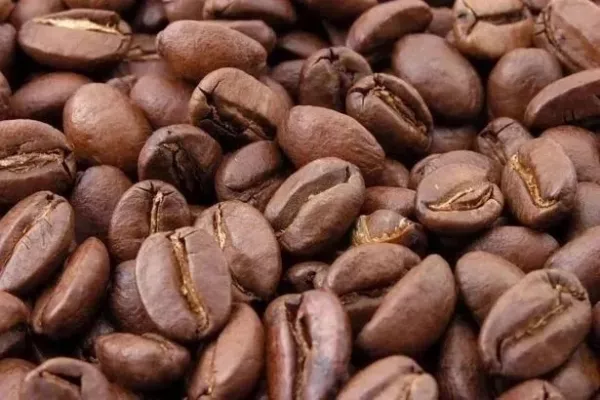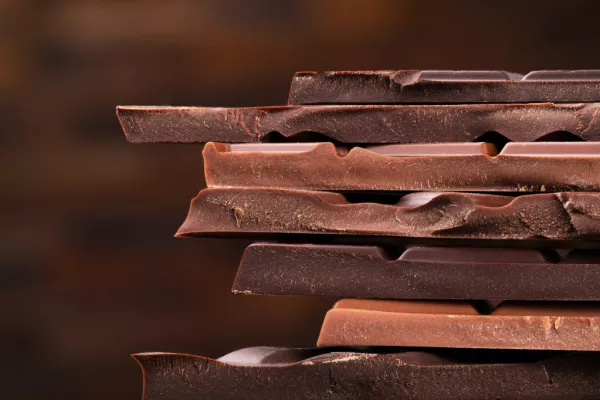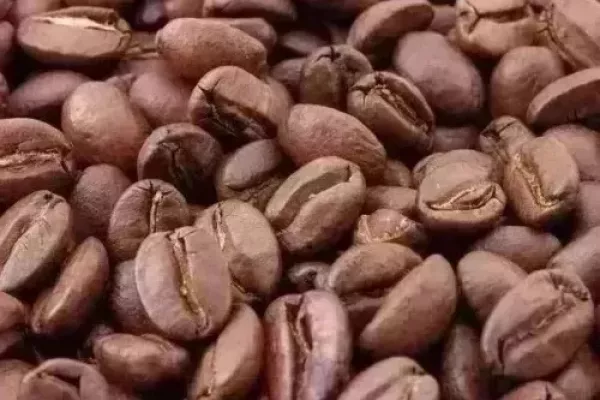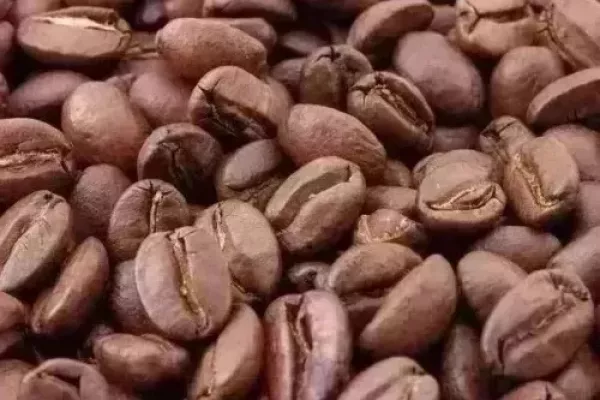Uganda's coffee exports in February plunged 20% compared to shipments from the same period a year ago, the state-run sector regulator has said, attributing the decline to drought that cut yields in some parts of the country.
The east African country exported 448,957 60-kilogram
bags in February, 20% lower than volumes exported in February last year, the Uganda Coffee Development Authority (UCDA) said in a report published on Saturday 19 March.
Uganda is Africa's biggest exporter of coffee followed by Ethiopia and earnings from the beans constitute a major of foreign exchange for the country.
UCDA said the decline in exports were mainly on account of low yields of robusta, the coffee variety that Uganda predominantly cultivates.
"The decrease in robusta exports was mainly attributed to lower yields this year that was characterized by drought in some regions," UCDA said.
Last month, Uganda blamed its withdrawal from an International Coffee Organisation (ICO) agreement on what it said are unfair tariffs and other barriers that restrict export of processed coffee to Europe and elsewhere.
Starbucks Café In Hometown Seattle Votes To Unionise
In other coffee-related news, the above news was followed by news that Starbucks workers in a café in Seattle, the coffee chain's hometown, voted 9 to 0 in favour of joining a labour union, according to a tally of ballots on Tuesday 22 March.
The results mark the seventh Starbucks-owned café in the United States to join the union, following five in Buffalo, New York and one in Mesa, Arizona.
It is the first location in the company's own backyard to join Workers United. Baristas at more than 150 US locations have petitioned a federal labour board for union elections since August, when the union drive went public.
The company runs approximately 9,000 US locations, with thousands of others operated under licensing agreements.
The ballooning union drive comes during a nationwide labour crunch.
Some investors have asked Starbucks to adopt a neutral stance toward the union, noting that the company spent years building a reputation as an employee-friendly workplace.
"For a company that depends on a strong brand and customer loyalty, where people have an option to go somewhere else very easily, reputation is critical," said Jonas Kron, chief advocacy officer at Trillium Asset Management.
Last week, Trillium and a group of other investors with $3.4 trillion under management asked Starbucks in a letter to stop sending anti-union communications to employees.
One unknown is what strategy the company will take when former Starbucks CEO Howard Schultz steps in for outgoing chief executive officer Kevin Johnson.
Schultz "has a long history of not wanting to see Starbucks unionized," Kron said. "But it is worth at least giving him an opportunity to make a pivot or to do a reset."
Nestle To Suspend "Vast Majority" Of Sales In Russia
Additionally, all of the above news was followed by news that Nestle is to halt the sale of a wide range of brands in Russia, including KitKat chocolate bars and Nesquik, amid Ukrainian President Volodymyr Zelenskiy's criticism of the world's biggest food company for its continued presence in the country.
The products affected, also including pet food and coffee, make up the "vast majority of volume and sales" in Russia, which totalled 1.7 billion Swiss francs ($1.82 billion) in 2021, a Nestle spokesperson said.
The Swiss company had already halted non-essential imports and exports to Russia and had also stopped all advertising and capital investment in the country and said it would donate profits from Russia to Ukrainian relief efforts.
Western companies with a presence in Russia have been trying to provide essential food and medicine while also facing pressure to cut all ties with Moscow.
More than 400 companies have withdrawn from Russia since it invaded Ukraine on 24 February, leaving behind assets worth hundreds of billions of dollars in aggregate.
Zelenskiy said Nestle had not done enough to live up to its "Good Food, Good Life" slogan by continuing to operate in Russia.
Russian President Vladimir Putin sent his troops into Ukraine on what he calls a "special military operation" to demilitarise and "denazify" the country. Ukraine and the West say Putin launched an unprovoked war of aggression.
Nestle, PepsiCo PEP.N, Unilever ULVR.L and Procter & Gamble PG.N, are continuing to provide basic items for nutrition and hygiene in Russia, such as milk and diapers.
French rival Danone DANO.PA on Wednesday 23 March said that it would continue local production in Russia of essential dairy and infant nutrition products.
Danone said that it had ceased all other imports and exports - including Evian water - and halted all investments, including advertising, brand activations and consumer promotions in Russia. The company also said that it was taking no cash, dividends or profits from its Russian business.
Zelenskiy on Wednesday 23 March told French lawmakers that French companies must leave the Russian market.
Nestle said that it would continue to pay its approximately 7,000 employees in Russia, where it has six factories that make products including ready meals, beverages and pet food.
Nestle also said that it stands with the people of Ukraine and its 5,800 employees in the country.
Nestle has in the past been criticised by activist groups and governments over issues including bottled-water manufacturing, a decision to stay in South Africa during apartheid, and baby formula marketing.
Before its move Wednesday, Nestle was denounced by Ukrainian politicians as well as hactivist group "Anonymous", which also urged a product boycott.
Jaideep Prabhu, a professor of marketing at the University of Cambridge's Judge Business School, told Reuters "There's a history of protesting against Nestle."
"Nestle is much more front and centre than P&G PG.N and Unilever ULVR.L when it comes to people knowing that they make their products," he said. "Nestle's logos are very prominent on its products."
Nestle shares closed down 1.6% on Wednesday 23 March.
News by Reuters, edited by Hospitality Ireland. Click subscribe to sign up for the Hospitality Ireland print edition.









